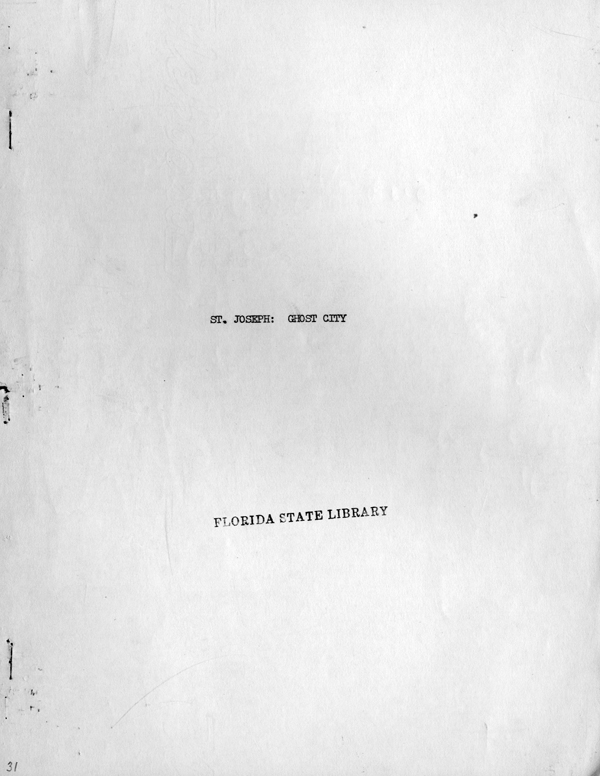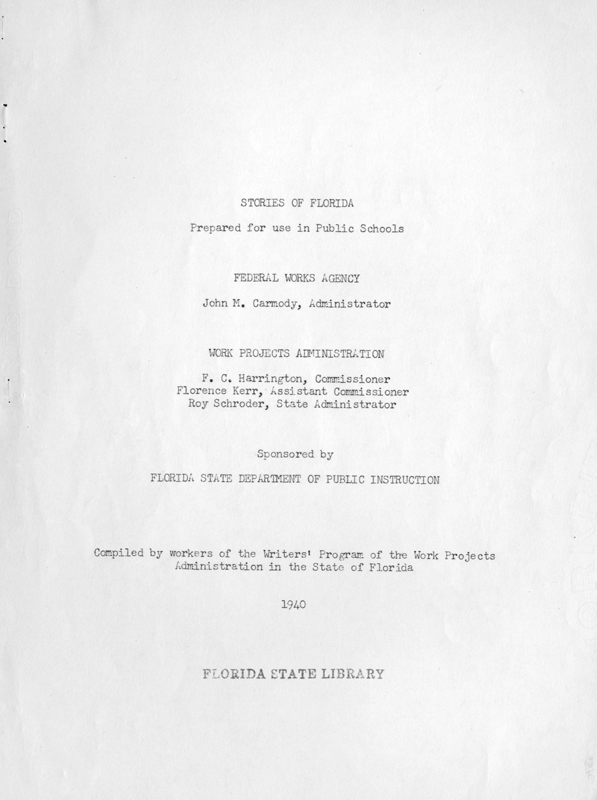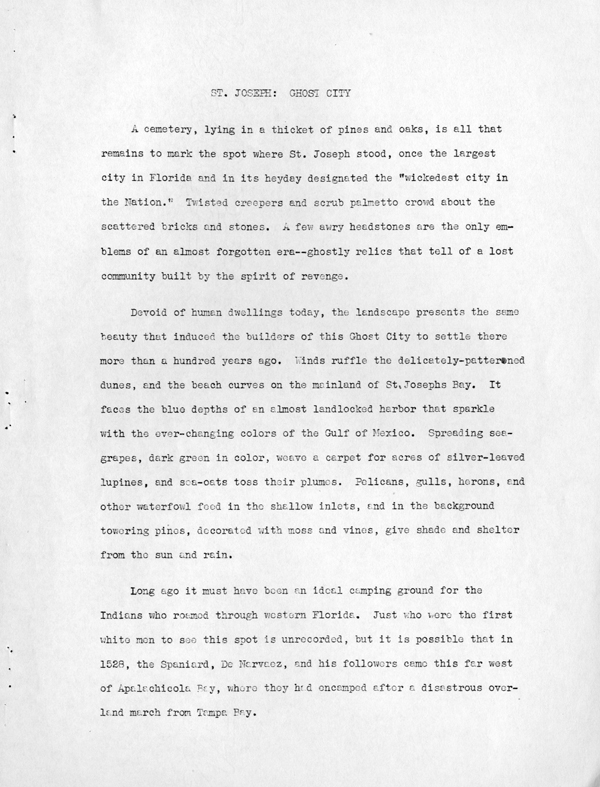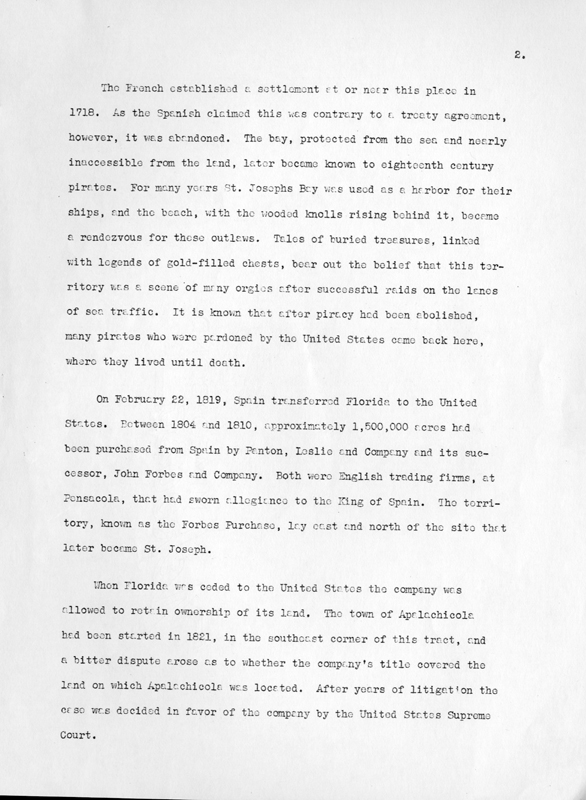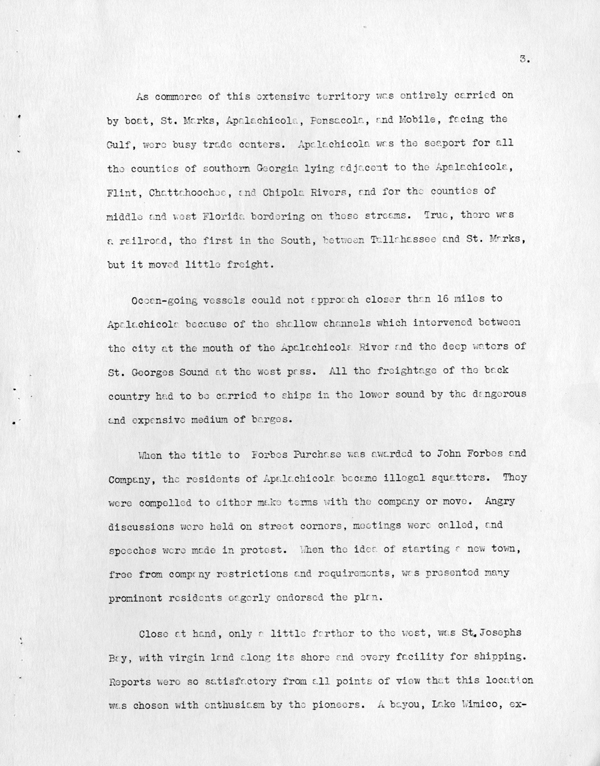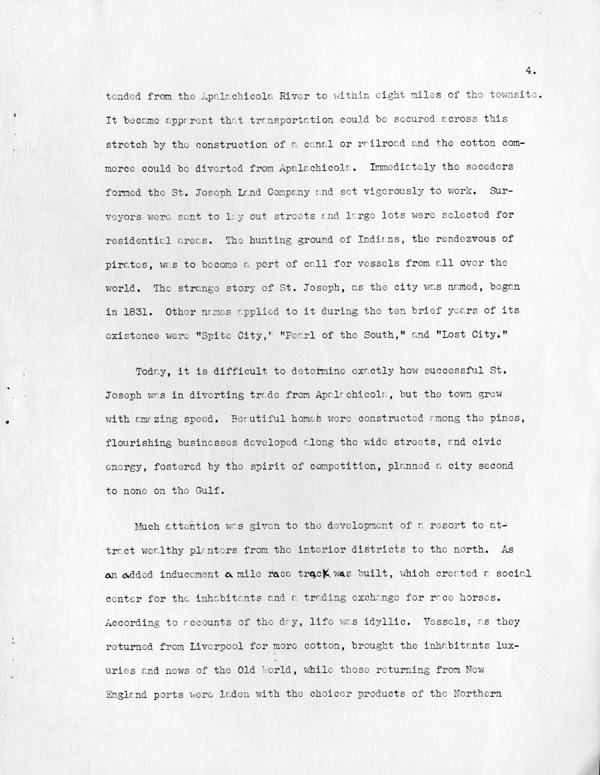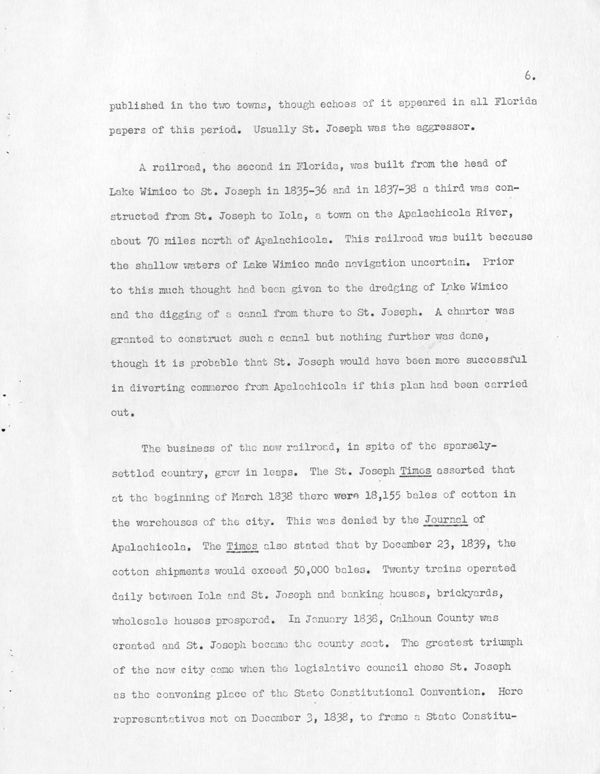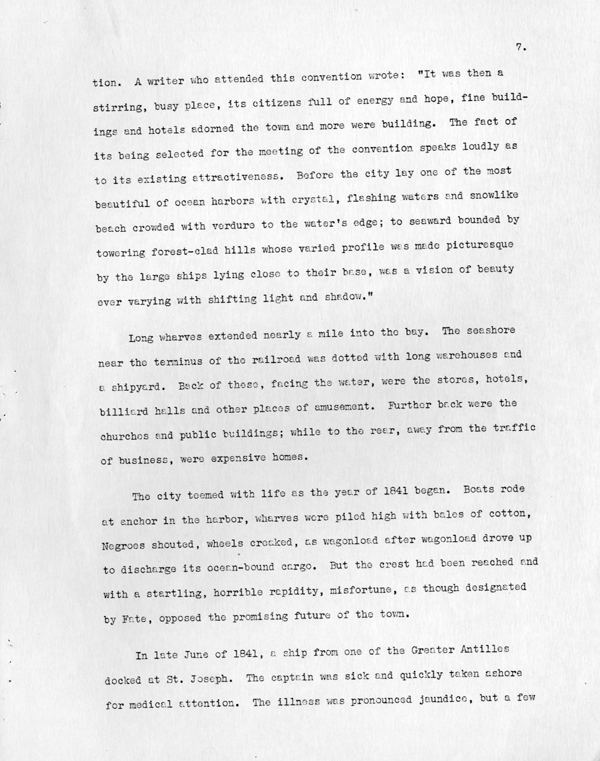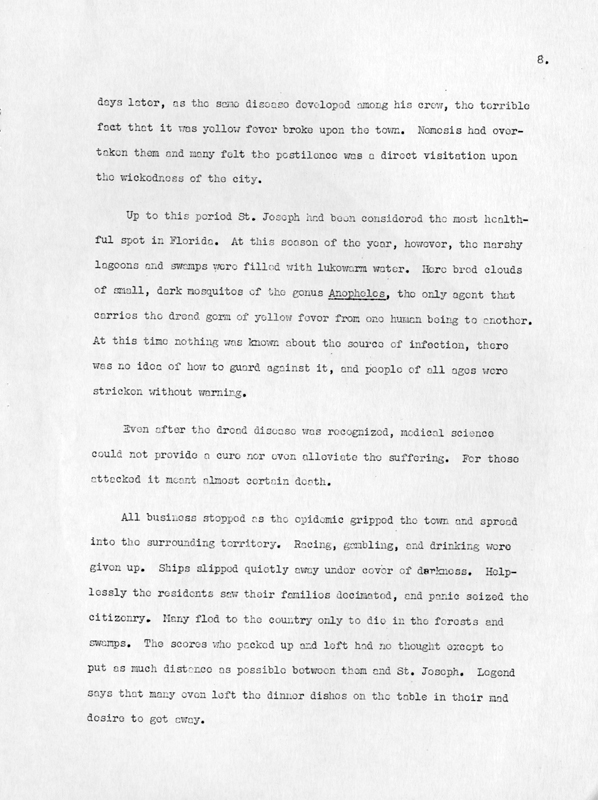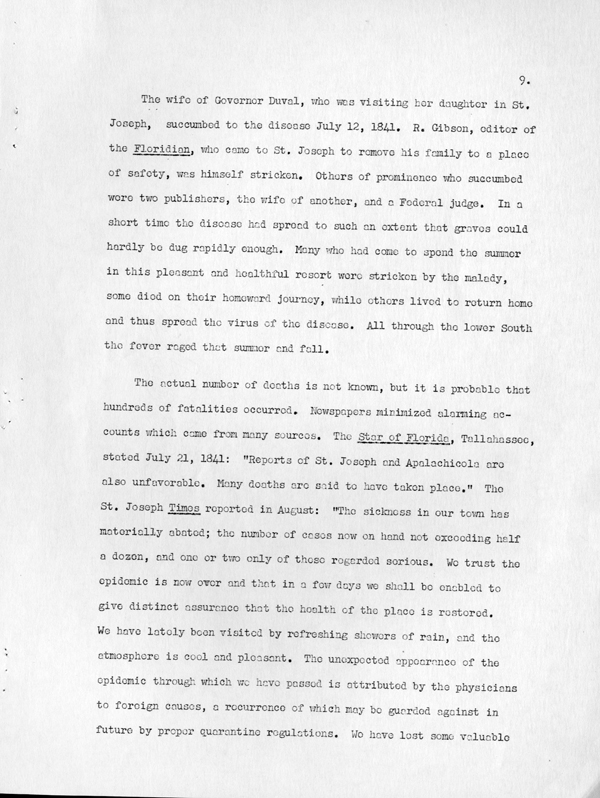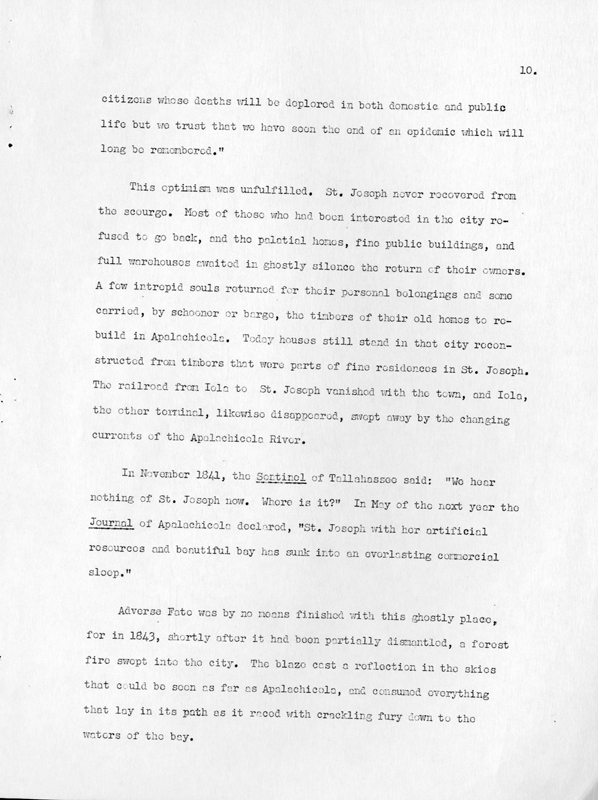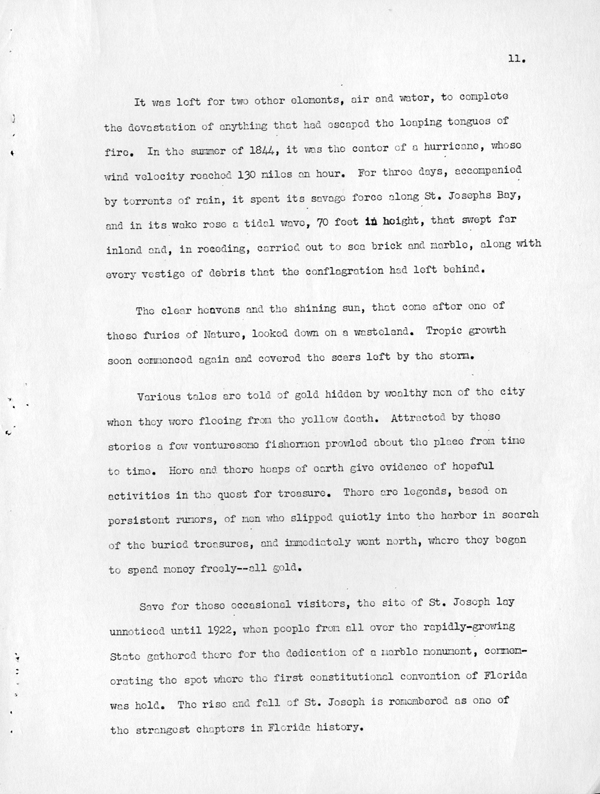Florida Memory is administered by the Florida Department of State, Division of Library and Information Services, Bureau of Archives and Records Management. The digitized records on Florida Memory come from the collections of the State Archives of Florida and the special collections of the State Library of Florida.

State Archives of Florida
- ArchivesFlorida.com
- State Archives Online Catalog
- ArchivesFlorida.com
- ArchivesFlorida.com
State Library of Florida
Related Sites
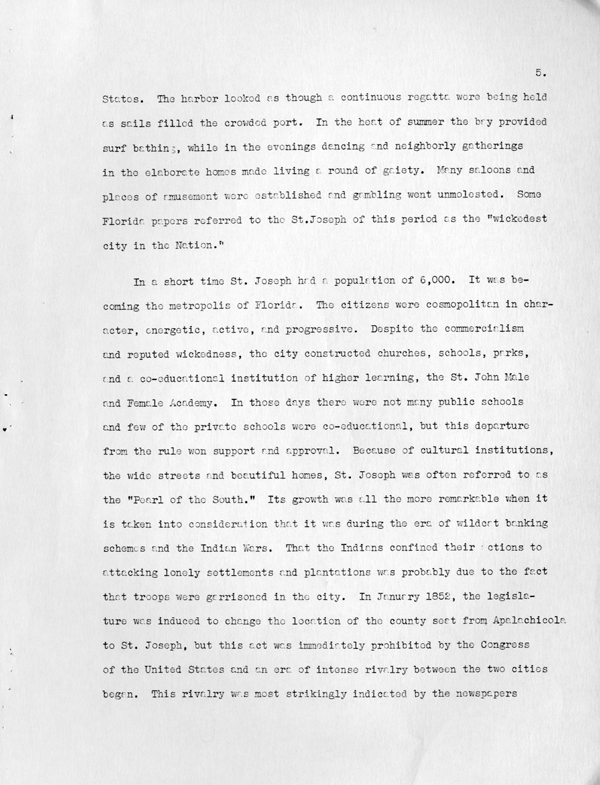
Description of previous item
Description of next item

Title
Published Date
[page 5]
States. The harbor looked as though a continuous regatta were being held as sails
filled the crowded port. In the heat of summer the bay provided surf bathing,
while in the evenings dancing and neighborly gatherings in the elaborate homes
made living a round of gaiety. Many saloons and places of amusement were
established and gambling went unmolested. Some Florida papers referred to the
St. Joseph of this period as the "wickedest city in the Nation."
In a short time St. Joseph had a population of 6,000. It was
becoming the metropolis of Florida. The citizens were cosmopolitan in
character, energetic, active, and progressive. Despite the commercialism
and reputed wickedness, the city constructed churches, schools, parks, and
a co-educational institution of higher learning, the St. John Male and
Female Academy. In these days there were not many public schools and
few of the private schools were co-educational, but this departure from the
rule won support and approval. Because of cultural institutions, the wide
streets and beautiful homes, St. Joseph was often referred to as the "Pearl
of the South." Its growth was all the more remarkable when it is taken
into consideration that it was during the era of wildcat banking schemes
and the Indian Wars. That the Indians confined their actions to attacking
lonely settlements and plantations was probably due to the fact that troops
were garrisoned in the city. In January 1852, the legislature was induced
to change the location of the county seat from Apalachicola to St. Joseph,
but this act was immediately prohibited by the Congress of the United
States and an era of intense rivalry between the two cities began. This
rivalry was most strikingly indicated by the newspapers
Title
Subject
Description
Source
Date
Contributor
Format
Language
Type
Identifier
Published Date
Image URL
Thumbnail
Transcript Path
Image Path
Image Path - Large
Chicago Manual of Style
St. Joseph: Ghost City. 1940. State Archives of Florida, Florida Memory. <https://www.floridamemory.com/items/show/181535>, accessed 12 February 2026.
MLA
St. Joseph: Ghost City. 1940. State Archives of Florida, Florida Memory. Accessed 12 Feb. 2026.<https://www.floridamemory.com/items/show/181535>
AP Style Photo Citation

 Listen: The World Program
Listen: The World Program